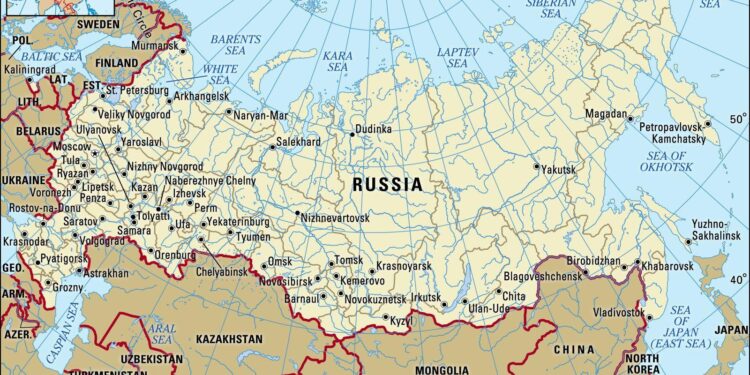Poland’s foreign minister has issued a stark warning about the escalating threat posed by Russia, stating that Moscow could launch strikes “deep into Europe.” Amid rising tensions and ongoing conflicts in Eastern Europe, the warning underscores growing concerns among European nations over the potential for expanded Russian military aggression beyond its immediate borders. The remarks come as Western governments grapple with how to respond to Russia’s assertive actions and bolster regional security.
Russia’s Expanding Military Reach Raises Security Concerns Across Europe
Poland’s foreign minister has issued a stark warning about Russia’s growing military capabilities, emphasizing that Moscow’s arsenal now possesses the potential to strike deep into the heart of Europe. This development is triggering alarm among European nations, which are now reassessing their defense strategies in light of Russia’s enhanced missile ranges and rapid deployment of advanced weaponry. The increased mobility and reach of Russian forces underscore a strategic shift designed to project power beyond its immediate borders, placing multiple European capitals within striking distance.
European security experts highlight several key concerns fueling the tense atmosphere:
- Expanded missile ranges: New missile systems reportedly capable of reaching targets hundreds of kilometers into Western Europe.
- Rapid force mobilization: Enhanced logistical support enabling faster troop deployments across borders.
- Hybrid warfare tactics: Increased use of cyber operations combined with conventional military maneuvers.
| Capability | Impact on Europe | Response Needed |
|---|---|---|
| Long-range Missiles | Targets beyond eastern European borders | Enhanced missile defense systems |
| Rapid Deployment | Quicker force projection | Increased NATO troop presence |
| Cyber Warfare | Disruption of critical infrastructure | Boosted cyber defense coordination |
Poland Calls for Strengthened NATO Presence and Enhanced Defense Measures
Poland’s foreign minister has issued a stark warning about the escalating security threats posed by Russia, emphasizing that Moscow’s potential to execute long-range strikes threatens stability across the continent. Highlighting the urgency for collective NATO action, Poland urges member states to bolster the alliance’s military footprint in Eastern Europe. This call includes deploying additional troops, enhancing intelligence sharing, and upgrading missile defense systems to deter hostile maneuvers effectively.
To confront this looming threat, Poland is advocating for a comprehensive strategy involving:
- Permanent deployment of NATO rapid response forces along the eastern flank
- Increased investment in cyber defense capabilities to protect critical infrastructure
- Strengthening coordination of joint military exercises to improve readiness
- Accelerated modernization of Poland’s own armed forces with advanced technology
| Defense Measure | Expected Outcome |
|---|---|
| Expanded NATO Troop Presence | Enhanced deterrence & quick response |
| Missile Defense Upgrade | Improved protection against strikes |
| Cybersecurity Investments | Secured critical infrastructure |
| Joint Military Exercises | Boosted operational readiness |
Experts Urge Increased Intelligence Sharing and Regional Preparedness Strategies
Security analysts highlight an urgent need for enhanced intelligence cooperation among European nations to mitigate the looming threat posed by Russia’s strategic capabilities. Experts emphasize that timely information sharing could significantly impede potential incursions that threaten the continent’s stability. Collaboration is not just encouraged but deemed essential in building a resilient front-one that integrates real-time data exchange, joint surveillance, and coordinated cyber defenses.
Key recommendations from regional security forums include:
- Establishing centralized intelligence hubs for rapid threat assessment
- Standardizing communication protocols across national agencies
- Increasing investment in early-warning radar and satellite monitoring
| Preparedness Strategy | Expected Outcome |
|---|---|
| Joint Military Exercises | Improved interoperability and rapid response |
| Shared Cyber Defense Networks | Enhanced resilience against cyber-attacks |
| Integrated Emergency Response Plans | Coordinated regional disaster management |
To Conclude
As tensions continue to escalate, Poland’s warning underscores the growing concerns among European nations about the potential reach of Russian military capabilities. With diplomatic efforts ongoing but fragile, the prospect of Russian strikes deep into Europe highlights the urgent need for coordinated defense strategies and heightened vigilance across the continent. The situation remains fluid, and officials worldwide are closely monitoring developments that could have significant implications for regional and global security.
















